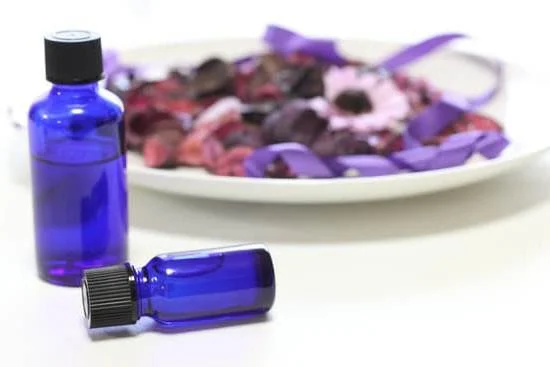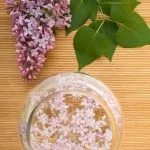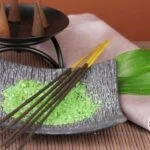Aromatherapy has long been recognized for its therapeutic benefits, and when combined with spa water, it can elevate the overall experience of relaxation and rejuvenation. But just how much aromatherapy should you add to your spa water to achieve the desired effects?
In this article, we will delve into the science behind aromatherapy, explore the factors to consider when adding essential oils to spa water, and provide recommended dosages for different essential oils. We will also discuss the tips for blending essential oils for maximum benefits and precautions to ensure safety when using aromatherapy in spa water.
Aromatherapy is the practice of using natural oils extracted from flowers, stems, leaves, roots or other parts of a plant to enhance psychological and physical well-being. When added to spa water, these essential oils are believed to have a range of benefits including stress relief, improved mood, and even relief from certain ailments. Understanding how aromatherapy works in spa water requires knowledge of the science behind essential oils and their interactions with water.
When it comes to incorporating aromatherapy into spa water, there are several important factors to consider such as the quality of the essential oils used, the specific health concerns or goals of the individual utilizing the spa, and any potential risks associated with certain essential oils. Additionally, understanding the recommended dosage for different essential oils in spa water is crucial in order to maximize their benefits while ensuring safety.
In the following sections, we will explore these considerations in depth and provide practical tips for achieving an optimal blend of aromatherapy in your spa experience.
The Science Behind Aromatherapy
Aromatherapy involves the use of essential oils to enhance the spa experience, offering numerous benefits for both the mind and body. When these essential oils are added to spa water, they can provide a wide range of therapeutic effects, including stress relief, relaxation, and improved mood. But how do essential oils work in water to deliver these benefits? The science behind aromatherapy in spa water lies in the interaction between the essential oils and the water molecules.
The molecules in essential oils are very small and volatile, which means they can easily evaporate into the air. When added to warm spa water, the heat causes the oils to vaporize more quickly, allowing them to be inhaled and absorbed by the body. Additionally, because oil and water do not naturally mix, special techniques such as emulsification or using a carrier oil may be necessary to ensure that the essential oils effectively disperse throughout the spa water.
Factors such as temperature, circulation, and pH levels can also affect how effectively essential oils work in spa water. For example, warmer temperatures can enhance the diffusion of aromas, while good circulation throughout the spa can help ensure an even distribution of essential oils. It’s important for spa owners and users to understand these factors in order to maximize the benefits of aromatherapy in their spa experience.
Recommended Dosage for Different Essential Oils in Spa Water:
1. Lavender: 5-7 drops
2. Peppermint: 3-5 drops
3. Eucalyptus: 4-6 drops
4. Rosemary: 4-6 drops
5. Lemon: 5-7 drops
These dosages may vary depending on personal preferences and sensitivities, so it’s important to start with a lower amount and adjust as needed based on individual reactions and desired strength of aroma.
Factors to Consider When Adding Aromatherapy to Spa Water
When adding aromatherapy to spa water, there are several factors to consider in order to achieve the best results. Here are some important points to keep in mind:
- Type of Essential Oil: Different essential oils have varying strengths and properties, so it’s essential to choose the right one for your desired effect. For example, lavender oil is known for its calming and relaxing properties, while eucalyptus oil is great for respiratory issues and muscle pain relief.
- Quality of Essential Oil: The quality of the essential oil can greatly affect how much you should add to spa water. High-quality, pure essential oils will likely require less quantity compared to lower quality or diluted oils.
- Personal Sensitivity: Everyone’s tolerance to essential oils differs, so it’s important to consider individual sensitivity when adding aromatherapy to spa water. Some people may be more sensitive to certain scents or have allergic reactions, so it’s crucial to start with a small amount and gradually increase as needed.
Understanding these factors will help you determine how much aromatherapy you should add to spa water based on your specific needs and preferences. It’s important to experiment with different essential oils and observe their effects on both your mind and body in order to find the perfect balance.
Ultimately, the goal is to create a soothing and therapeutic experience that enhances your overall well-being. By considering these factors, you can maximize the benefits of aromatherapy in your spa water and enjoy a truly rejuvenating experience.
Recommended Dosage for Different Essential Oils in Spa Water
When it comes to adding aromatherapy to spa water, it is essential to consider the recommended dosage for different essential oils. The right amount of essential oils can enhance the therapeutic benefits of the spa experience, while using too much can have adverse effects. In this section, we will explore the recommended dosage for popular essential oils used in spa water and how to achieve a perfect balance for maximum relaxation.
Lavender Essential Oil
Lavender essential oil is a popular choice for aromatherapy in spa water due to its calming and soothing properties. For a standard-sized spa, it is recommended to add 5-7 drops of lavender essential oil per 100 gallons of water. This amount allows the aroma to disperse evenly and provide a relaxing environment for users without overwhelming their senses.
Peppermint Essential Oil
Peppermint essential oil is known for its invigorating and refreshing scent, making it an excellent choice for spa water. However, due to its potent nature, only 2-3 drops of peppermint essential oil should be added per 100 gallons of water in a spa. This dosage provides a subtle and revitalizing fragrance without being overpowering.
Eucalyptus Essential Oil
Eucalyptus essential oil is often used in spas for its respiratory benefits and refreshing scent. For optimal results, 5-6 drops of eucalyptus essential oil per 100 gallons of water is recommended. This quantity creates an invigorating atmosphere that promotes clear breathing and relaxation.
By following the recommended dosage for different essential oils in spa water, you can ensure that your aromatherapy experience is safe, effective, and enjoyable. Experimenting with blends of these oils can also create unique and personalized experiences tailored to each individual’s preferences.
Tips for Blending Essential Oils for Maximum Aromatherapy Benefits
Blending essential oils is a great way to create a personalized aromatherapy experience in your spa water. When it comes to creating the perfect blend, there are a few factors to consider. First, you’ll want to think about the scent profile you’re trying to achieve. Consider which essential oils work well together and complement each other’s aromas. For example, lavender and chamomile are known for their calming properties, making them a great combination for relaxation.
Another important factor to consider when blending essential oils for spa water is the therapeutic benefits you’re looking to achieve. Different essential oils have different properties that can help with everything from relaxation and stress relief to energizing and uplifting moods. For example, peppermint and eucalyptus are popular choices for creating an invigorating and refreshing blend that can help clear the mind.
When it comes to how much aromatherapy you should add to spa water, it’s important to remember that a little goes a long way. Essential oils are highly concentrated, so only a few drops are needed to create a fragrant and therapeutic experience in your spa water.
The exact amount will depend on personal preference and the size of your spa, but as a general rule of thumb, start with just a few drops and adjust as needed based on the strength of the aroma.
Overall, blending essential oils for maximum aromatherapy benefits in your spa water can be an enjoyable and rewarding process. By considering scent profiles, therapeutic benefits, and using caution with concentration levels, you can create a customized aromatherapy experience that enhances both mind and body during your spa visit.
| Essential Oils | Recommended Dosage (For Standard-Sized Spa) |
|---|---|
| Lavender & Chamomile | 5-7 drops each |
| Peppermint & Eucalyptus | 3-5 drops each |
Precautions and Safety Measures When Using Aromatherapy in Spa Water
Aromatherapy can be a wonderful addition to your spa water, providing numerous benefits for both mind and body. However, it is essential to take the necessary precautions and safety measures when incorporating essential oils into your spa experience.
First and foremost, it is important to understand that essential oils are highly concentrated. This means that only a small amount is needed to achieve the desired aromatherapy effects. When adding essential oils to spa water, always start with a minimal amount and adjust as needed. A good rule of thumb is to start with just a few drops of essential oil per gallon of water.
Furthermore, not all essential oils are safe for use in spa water. Some oils can cause skin irritation or allergic reactions, especially when used in high concentrations. It is crucial to research and understand the properties of each essential oil before adding it to your spa water. Additionally, some oils may not mix well with certain medications or medical conditions, so it is important to consult with a healthcare professional if you have any concerns.
When using aromatherapy in your spa water, always ensure that the essential oils are properly diluted. Directly adding undiluted essential oils into spa water can lead to skin irritation and other adverse reactions. Diluting the essential oils with a carrier oil or dispersant can help ensure that they are safely mixed into the water without causing any harm.
| Essential Oil | Recommended Dosage (Per Gallon of Water) |
|---|---|
| Lavender | 3-5 drops |
| Peppermint | 2-3 drops |
| Eucalyptus | 1-2 drops |
The Effects of Aromatherapy on Mind and Body in a Spa Setting
Aromatherapy has been long recognized for its calming, relaxing, and rejuvenating effects on the mind and body. When added to spa water, essential oils can enhance the overall spa experience and provide a range of therapeutic benefits. In this section, we will explore how aromatherapy affects the mind and body in a spa setting and how to achieve the perfect balance for maximum benefits.
Relaxation and Stress Relief
One of the most popular reasons people seek out aromatherapy in a spa setting is for relaxation and stress relief. Certain essential oils such as lavender, chamomile, and bergamot are known for their calming properties and can help promote relaxation during a spa visit. When added to spa water, these essential oils can create a soothing atmosphere that allows guests to unwind and de-stress.
Physical Benefits
In addition to promoting relaxation, aromatherapy in spa water can also have physical benefits. For example, eucalyptus oil is often used for its decongestant properties, which can be particularly helpful in steam rooms or saunas. Peppermint oil is another popular choice for its cooling sensation that can provide relief from muscle soreness or tension when added to bathwater.
Mood Enhancement
Aromatherapy has the potential to uplift mood and enhance mental well-being. Essential oils such as citrus (e.g. lemon, orange) and peppermint are known for their invigorating aroma that can help boost energy levels and improve mood. By carefully selecting and blending essential oils in spa water, it is possible to create an atmosphere that promotes positivity and emotional balance for spa-goers.
Incorporating the right amount of aromatherapy into spa water is crucial in achieving these desired effects. Understanding the recommended dosage for different essential oils and considering individual preferences will ultimately contribute to a positive experience for spa visitors looking to reap the benefits of aromatherapy during their visit.
Conclusion
In conclusion, incorporating aromatherapy into your spa water can greatly enhance your overall experience. The therapeutic benefits of essential oils have been well-documented, and when used correctly, they can promote relaxation, reduce stress, and relieve muscle tension. However, it is important to keep in mind that the key to reaping the rewards of aromatherapy lies in using the right amount of essential oils in your spa water.
When determining how much aromatherapy to add to your spa water, it is crucial to consider factors such as the type of essential oil being used, the size of the spa or hot tub, and individual preferences. The recommended dosage for different essential oils can vary significantly, so it is essential to do thorough research or consult with a professional before adding them to your spa water.
Additionally, blending essential oils thoughtfully can maximize their aromatic and therapeutic benefits, resulting in a more effective and enjoyable spa experience.
It is also important to exercise caution and adhere to safety measures when using aromatherapy in your spa water. Some essential oils can be irritating or even harmful if not used properly.
By being mindful of proper dosages and potential sensitivities or allergies, you can ensure a safe and enjoyable aromatherapy experience in your spa. Overall, by understanding how much aromatherapy should be added to spa water and following recommended guidelines, you can make the most out of this powerful wellness practice and achieve a truly rejuvenating spa experience.
Frequently Asked Questions
How Do I Add Aromatherapy to My Hot Tub?
Aromatherapy can be added to a hot tub by using essential oils specifically made for this purpose. The most common way is to add a few drops of essential oils into the hot tub water.
What Is the Ratio of Essential Oils to Water?
The ratio of essential oils to water in a hot tub is generally recommended to be low, around 2-3 drops per 100 gallons of water. It’s important not to overdo it as essential oils are highly concentrated and can be irritating in large quantities.
Is Aromatherapy Safe in a Hot Tub?
Aromatherapy can be safe in a hot tub if done correctly and cautiously. It’s important to use high-quality, pure essential oils and not artificial fragrance oils. Also, everyone using the hot tub should be aware of any allergies or sensitivities to particular scents before adding them to the water.

Are you looking for a natural way to improve your health and wellbeing?
If so, aromatherapy may be the answer for you.





